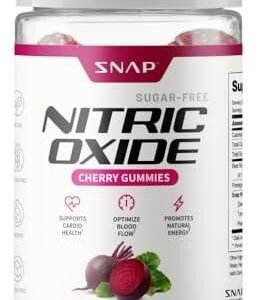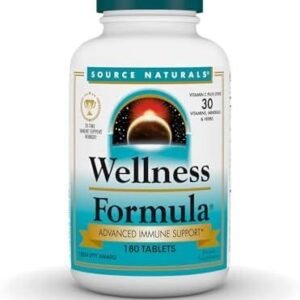As the world navigates through an era marked by health challenges and heightened awareness of immune health, the spotlight on vitamin D has never been more pronounced. Often dubbed the “sunshine vitamin” for its natural synthesis in the skin upon sunlight exposure, vitamin D is much more than a mere enhancer of bone health; it is a pivotal player in orchestrating robust immune responses. Recent studies illuminate its multifaceted role in not only preventing illness but also in managing chronic conditions linked to immune dysfunction. In an age where a resilient immune system is crucial for overall well-being, understanding the profound impact of vitamin D empowers us all to take proactive steps toward safeguarding our health. Join us as we explore the science behind this vital nutrient and its indispensable role as a key ally in fortifying our immune defenses.
Table of Contents
- Understanding the Immune Systems Relationship with Vitamin D
- Sources and Absorption: Maximizing Your Vitamin D Intake
- Boosting Immunity Through Supplementation and Lifestyle Choices
- Debunking Myths: The Truth About Vitamin D and Immune Health
- In Summary
Understanding the Immune Systems Relationship with Vitamin D
Vitamin D is often referred to as the sunshine vitamin, but its role in supporting the immune system extends far beyond just maintaining bone health. Research indicates that adequate levels of vitamin D can modulate both innate and adaptive immune responses. This vital nutrient empowers the body to fend off pathogens and reduces inflammation, striking a balance that is essential for optimal immune function. By enhancing the pathogen-fighting effects of monocytes and macrophages, vitamin D plays a crucial role in our first line of defence against infections. Factors such as geographical location, season, and individual lifestyle can significantly impact vitamin D synthesis in the skin, making awareness of one’s vitamin D status critical for immune health.
Moreover, the relationship between vitamin D and the immune system is complex and multifaceted. Some of the key functions of vitamin D in immune regulation include:
- Promoting the production of antimicrobial peptides, such as defensins, that help eliminate invading microorganisms.
- Regulating T-cell activation and growth, which are essential for orchestrating the body’s adaptive immune response.
- Reducing the risk of autoimmune diseases by moderating the overactivity of the immune system.
- Enhancing the response to vaccinations, subsequently improving long-term immunity.
Maintaining adequate vitamin D levels, therefore, emerges as a strategic approach to bolstering immune defenses.
Sources and Absorption: Maximizing Your Vitamin D Intake
To effectively boost your vitamin D levels, it’s essential to identify the best sources available. Natural sunlight is undoubtedly the most potent form of vitamin D synthesis, as the skin produces this vital nutrient upon exposure to UVB rays. On sunny days, a mere 10-30 minutes outdoors can significantly elevate your levels. However, for those living in areas with limited sunlight, especially during the winter months, alternative sources become crucial. Consider incorporating the following foods into your diet:
- Fatty Fish: Salmon, mackerel, and sardines are rich in vitamin D.
- Cod Liver Oil: A concentrated source that’s perfect for supplementation.
- Fortified Foods: Many cereals and dairy products come fortified with vitamin D.
- Egg Yolks: A simple and versatile way to enhance vitamin D intake.
While sourcing vitamin D is vital, absorption is equally important to maximize its benefits. Consuming vitamin D-rich foods with healthy fats can significantly enhance its absorption, as this nutrient is fat-soluble. Incorporating fats like olive oil, avocados, or nuts can amplify the effectiveness of your vitamin D intake. To highlight the synergy between these dietary elements, consider the following combinations:
| Food Pairing | Vitamin D Source | Fat Source |
|---|---|---|
| Salmon Salad | Salmon | Olive Oil Dressing |
| Egg and Avocado Toast | Egg Yolks | Avocado |
| Cereal with Nut Milk | Fortified Cereal | Almond or Cashew Milk |
Boosting Immunity Through Supplementation and Lifestyle Choices
To understand the role of Vitamin D in enhancing immune function, it’s essential to recognize its impact on various immune responses. This crucial vitamin plays a significant part in activating the immune system, acting as a defender against viruses and pathogens. When the body encounters infection, Vitamin D helps modulate the immune response, thereby reducing the risk of autoimmune disorders. Individuals can boost their Vitamin D levels through various lifestyle choices, including:
- Sunlight Exposure: Spending 10-30 minutes in sunlight for a few times a week.
- Dietary Sources: Incorporating foods rich in Vitamin D such as fatty fish, fortified dairy products, and egg yolks.
- Supplementation: Considering Vitamin D supplements, especially in areas with limited sunlight.
While adequate Vitamin D levels are crucial, they should be complemented with other healthy lifestyle practices to create a robust immune system. Engaging in regular physical activity and maintaining a balanced diet rich in antioxidants and vitamins can significantly enhance immune resilience. Here’s a simple comparison of beneficial nutrients that can work alongside Vitamin D:
| Nutrient | Benefit |
|---|---|
| Vitamin C | Boosts the production of white blood cells. |
| Zinc | Enhances immune function and reduces inflammation. |
| Omega-3 Fatty Acids | Supports overall immune health and reduces inflammatory responses. |
Debunking Myths: The Truth About Vitamin D and Immune Health
Despite the widespread belief in the omnipotent role of vitamin D in immune health, it is essential to clarify some misconceptions. Vitamin D is not a cure-all; rather, it functions as a supportive component in a multifaceted immune response. Research supports that adequate levels can enhance the pathogen-fighting effects of monocytes and macrophages, which are vital white blood cells in our defence system. However, deficiency does not automatically lead to illness, nor does an abundance guarantee immunity. Balancing vitamin D levels should be part of a comprehensive approach to wellness that includes a healthy diet, regular exercise, and proper sleep.
To better understand the relationship between vitamin D and immune function, consider the different sources and recommended levels for optimal health. Here’s a quick reference table:
| Source | Vitamin D (IU/100g) |
|---|---|
| Salmon | 570 |
| Fortified Milk | 100 |
| Egg Yolks | 37 |
| Mushrooms (UV-exposed) | 450 |
Consider consulting a healthcare provider to evaluate your vitamin D levels and tailor a plan that complements your individual health needs. Remember, a singular nutrient never operates alone; it’s the synergy of various components that forms a robust immune system.
In Summary
as we navigate the complexities of maintaining robust health in an ever-changing world, vitamin D emerges not merely as a supplement but as a steadfast ally in our quest for fortitude. It plays a crucial role in the intricate dance of our immune systems, enhancing our resilience against a myriad of pathogens and supporting overall well-being.
Embracing sunlight, fortified foods, and thoughtful supplementation can empower us to harness the full spectrum of vitamin D’s protective potential. As research continues to unveil the depths of its benefits, let us remain proactive in nurturing this vital nutrient, transforming our understanding into actionable steps for a healthier future.
In the face of emerging health challenges, fortifying our immune defenses with vitamin D is not just a strategy; it is a commitment to our longevity and vitality. As you embark on this journey toward enhanced immunity, may you find inspiration in the sun’s warm rays and the powerful promise of this extraordinary vitamin. After all, in our pursuit of wellness, it’s the small, intentional choices that pave the way for a resilient tomorrow.





